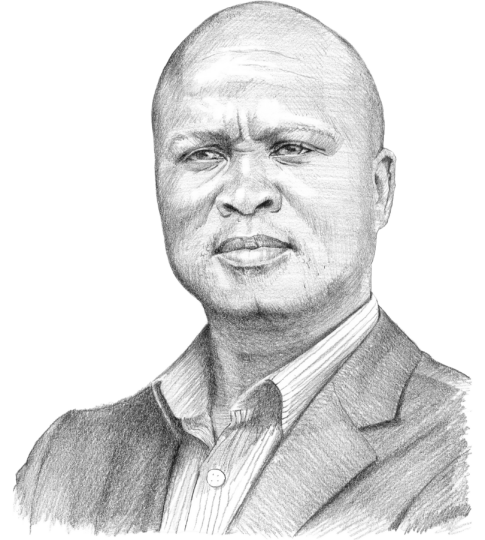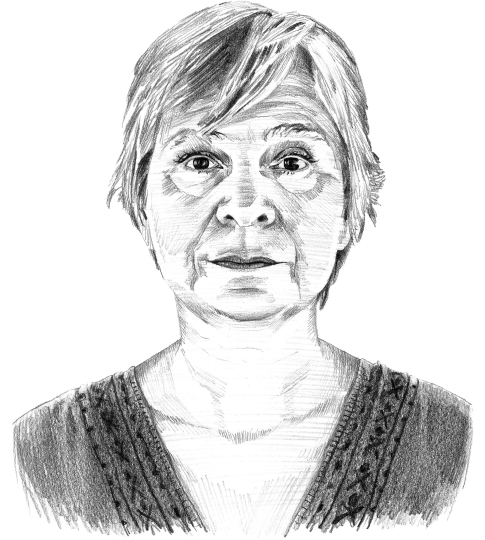Bridging Africa’s digital divide
Africa faces significant internet disruptions and a widening digital divide, revealing a need for competition, investments in infrastructure and policy reforms.

In a nutshell
- Undersea cable failures have caused major internet disruptions across Africa
- Policymakers are discussing universal, affordable internet access and competitive investment
- Autocrats and vested interests are working against the digital rollout
Countries across Africa have experienced massive internet connectivity disruptions this year due to cuts in the undersea fiber cables in the Red Sea and along Africa’s east and west coasts. This has left much of the continent disconnected from the digital world that many rely on for essential services, e-commerce, business and daily life.
There is an increasing awareness that African countries need to proactively seize the opportunity and join the fourth industrial revolution to boost economic prospects for millions; if not, current gaps may become entrenched. Disruptions caused by the repeated undersea cable failures – in February, March and May – have sparked debates about the continent’s readiness to embrace the potential of information and communication technology (ICT) and fortify it as an economic catalyst.
South Africa, for example, currently relies on approximately 10 undersea cables connecting the country through its vast coastlines. The recent outages specific to South Africa affected four cables, and internet traffic was rerouted through other slower networks to keep the country connected.
Access to the internet, or lack thereof, effectively has implications on one’s human rights.
A lack of progress in the digital rollout stems not only from infrastructure needs, but also from some autocrats who fear wider access to information may create political competition. Countries with weak democracies and kleptocracies may continue to face limited ICT rollout, while cyber corruption is another cloud looming over the continent’s digital future.
Policymakers across the Southern African Development Community (SADC) region recognize that African economies would benefit immensely from unlocking ICT’s potential to integrate local businesses into the global economy. So far, the effort has led to the adoption of regional targets focused on broader and more affordable internet access, but more remains to be done.
The connectivity conundrum and economics
South Africa is among the few countries in sub-Saharan Africa boasting wide access to internet connectivity, thanks to policy interventions enabling ICT rollout. Currently, 70 percent of the country’s population has internet access, and the government aims to reach 80 percent in the next three years. Broadband internet coverage is also on the rise, and 5G has been deployed in 14 African countries. Yet despite initial success, there are underlying challenges such as poor or underdeveloped infrastructure affecting rural communities on the outskirts of digital networks. This prevents large segments of society from reaching their potential in the digital world, and acts as a brake on the country’s overall economic development.
The new South African unity government, which emerged this spring after the former ruling African National Congress lost its majority for the first time since 1994, faces public pressure to make ICT one of its urgent policy areas. Government officials are heeding the calls and have announced plans to boost economic growth and societal development through improved digital connectivity.
Facts & figures
The digital divide prevents many in Africa from participating in an increasingly networked world. Access to the internet, or lack thereof, effectively has implications on one’s human rights. The pivotal role of ICT in improving access to health services and education in particular continues to be a missed opportunity for many in Africa, despite policy decisions seeking to address this challenge. Expert documentation from across different jurisdictions in the SADC shows that governments realize that ramping up access to internet connectivity will support small- and medium-sized enterprises. That could help address the youth unemployment crisis; in South Africa, for example, 45 percent of people aged 15-34 are unemployed.
More broadly, the United Nations Conference on Trade and Development, held in October 2023, noted that “although 63 percent of the world’s population is connected, the least-developed countries still only count 27 percent of their populations as internet users.” The digital divide and its associated inequalities threaten the realization of UN Sustainable Development Goals. As early as 2018, the Development Bank of Southern Africa noted that their forecasts on broadband growth in the region are conservative because the majority of potential users are unable to afford the costs of reliable and robust internet access.
Read more from political, social and economic researcher Ralph Mathekga
- South Africa’s upcoming election could change everything
- Clientelism makes a mockery of nonaligned policy claims
- South Africa’s Russian ties come under scrutiny
- Can Southern Africa take on inflation?
If not addressed, the widening digital gap could entrench Western and Asian dominance of the data economy. Many argue that developing nations, through partnerships with developed nations, should scale up investments in ICT infrastructure to boost capacity to meet growing demand for connectivity in marginalized and poor communities. The European Union has launched the Global Gateway program to boost investment from the EU and member states in digital and renewable infrastructure in Africa. Attracting private investments in the capital-intensive ICT sector requires alignment of policies and the regulatory environment across jurisdictions in Africa.
Intra-Africa divides
The trend of inequitable access to ICT infrastructure in Africa widens the rural-urban divide in terms of access to opportunities and prosperity. For non-urban communities in an environment characterized by social and economic destitution, access to the internet is still a luxury that many have resigned themselves to living without due to prohibitive costs. This poses a threat that communities in Africa’s rural areas will remain permanently excluded from the digital economy, creating an uneven development path stifling economic expansion in the region.
The recent undersea cable breaks have laid bare the vulnerability that African and global economies face from underdeveloped infrastructure. The massive internet interruptions have halted some industry, hindered start-ups and slowed economic progress. This serves as a stark reminder that for a majority of the rural communities in sub-Saharan Africa, experiencing the digital world remains a challenge.
The massive internet interruptions have halted some industry, hindered start-ups and slowed economic progress.
Commitments to policy reforms aimed at opening the region to global ICT market operators would ideally be followed by substantive and measurable shifts allowing for more investment in the sector. Yet among the persistent challenges relating to policy pronouncements on ICT is the slow pace at which the legal and regulatory regime around the continent is adjusted to attract investments. A lack of political will to drive the initiative of full integration of African communities into the digital world remains a challenge many governments in the region now face. Currently the status quo is an unfavorable and vague policy environment whereby many policymakers pay lip service to digital connectivity, but little more. Some officials still do not see that connectivity is a necessity that cannot be ignored without bearing adverse consequences on living conditions and economic development.
African countries remain the least integrated into the digital economy worldwide, despite measurable improvements in some jurisdictions such as South Africa. One way this can be addressed effectively is to facilitate investment and allow open competition in the sector by working through policy levers and doing away with the red tape that has stifled market entries. A lack of action now, however, will increase the later costs of bringing significant parts of the African population into the digital economy.
Scenarios
The future of digital development in Africa follows two conflicting trajectories. There is an understanding that even a gradual improvement in connectivity will enhance the lot of millions of people and boost economic prospects. But vested interests view internet access as a political threat or opportunity for manipulation. Navigating a path forward requires understanding both.
Likely: The ICT policy debate will gradually foster competition in some countries
African democracies are confronted with the challenge of positioning their societies for the digital world amid opaque regulatory regimes that continue to hold back the region’s full integration into the digital economy. High costs of accessing ICT services for a majority in Africa, particularly in the rural outskirts, attest to the sector being far from competitive. The protection of the ICT sector through insidious regulatory frameworks is one of the main challenges facing African economies.
Despite some remarkable progress in deregulating the ICT sector and allowing some competition to occur in past years, the sector even in the democracy of South Africa, for example, is still dominated by a few players, while the majority find the services unaffordable and unreachable. Even with policy commitments to improve governance of and access to ICT, implementation faces roadblocks. This raises the question of whether policymakers are genuinely committed to digital integration by opening the sector for investment and competition.
Nevertheless, the recent election in South Africa shows the general population wants change. African countries will harness their development potential if they are integrated into global trade and commerce; this has already proved effective in digital payment systems that operate across countries and facilitate commerce and mobility. Digital integration is a platform that will strengthen democracies and pave the way towards economic empowerment.
Likely: Vested interests may seek to stifle the digital roll out
Full integration into the digital world, including access to the internet, brings with it inevitable uncertainties regarding the effects of populations with greater access to information. For countries lacking in democratic strength, such as Zimbabwe, Angola and Eswatini, expansion of access to the internet will be unappealing to nervous leaders. Some governments are actively blocking public access to the digital realm. This has been one of the insidious hindrances of commitments to free access to the internet and ICT services.
Cybersecurity is another source of anxiety and rising concern among policymakers that has stood in the way of policies aimed at widening access to the digital world in Africa. Many countries are not yet ready to tackle and manage critical risks. Limiting access to the internet to avoid potential social and political fallouts will not only delay development and progress for most nations in Africa, but will also hold back their ability to adapt to the fast-paced digital world.
For industry-specific scenarios and bespoke geopolitical intelligence, contact us and we will provide you with more information about our advisory services.









